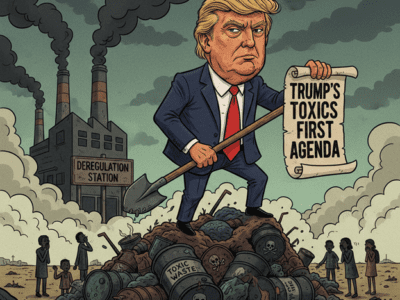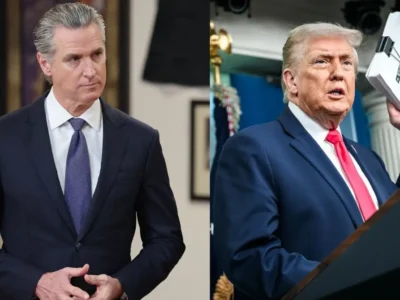Can the Major Question Doctrine Block Trump’s Excesses?
The doctrine has been hailed by conservatives. But it may come back to bite them.
In West Virginia v. EPA, struck down Obama’s Clean Power Plan. The Court’s opinions opinion announced new limits on government actions in what it termed “extraordinary cases.” This has become known as the major question doctrine. It tells judges to be skeptical when the government leverage some vague or obscure law to support a dramatic, unprecedented action. Dramatic, unprecedented actions are Trump’ stock in trade. The major question doctrine could be a major roadblock.
In his opinion in the West Virginia case, Chief Justice Roberts relied on the following factors to justify applying the major question doctrine:
- Stark departure from past practice and regulatory norms. The agency’s interpretation of the statute was “not only unprecedented; it also effected a ‘fundamental revision of the statute, changing it from [one sort of] scheme of … regulation’ into an entirely different kind.” Moreover, EPA had relied on an obscure and little-used portion of the statue.
- Breadth of the claimed authority. Under EPA’s view of the statute, Roberts says, “Congress implicitly tasked it, and it alone, with balancing the many vital considerations of national policy implicated in deciding how Americans will get their energy.” Congress needs to say so clearly if that’s what it intends.
- Lack of relevant expertise. EPA lacked expertise on running the electricity system.
- Congressional consideration and rejection. Congress considered and rejected multiple efforts to create a cap-and-trade scheme for carbon.
As an example of how the major question doctrine could block Trump, consider Schedule F. Schedule F is a tool Trump has said he plans to use to use as soon as he takes office to “remove rogue bureaucrats,” and he promises to use that tool “very aggressively.” It could strip as many as fifty thousand workers of their Civil Service status.
Schedule F has many of the earmarks of a major question:
- An obscure, vague statutory provision,
- Unprecedented use of the provision,
- A radical departure from past practice, and
- Political controversy and a significant economic impact (potentially layoffs for 50,000 workers).
It seems unlikely that Congress would have wanted to delegate a decision of such consequence to the executive branch, especially since the whole purpose of the Civil Service Act is to limit politicization of the bureaucracy. As Justice Scalia once said, Congress does not hide elephants in mouseholes — and § 7511(b)(2) is as much a mousehole as you could find in the U.S. Code.
I don’t want to oversell the utility of the major question doctrine in blocking Trump. The scope of the doctrine is very unclear, leaving lower courts all over the map in how they interpret it. And a conservative Supreme Court could well find reasons to apply it to liberal actions but not conservative ones. But because the doctrine is designed to prevent quantum leaps in government policy, it just might be what we need in the Trump era.
Note: After posting this, I learned about a memo at Governing for Impact discussing this strategy that is worth a read.
Reader Comments
4 Replies to “Can the Major Question Doctrine Block Trump’s Excesses?”
Comments are closed.






The premise of this article assumes that SCOTUS has some level of integrity. Don’t be surprised if they exhibit the same impulse for motivated and selective reasoning that caused them to fabricate the Major Questions Doctrine out of whole cloth in the first place.
“The major question doctrine just might be what we need to block him.” Its good to see that you’re no longer pretending to be an objective observor but a partisan.
It’s an interesting thought and possibly an avenue worth exploring, but I’m skeptical. In the Clean Power Plan case (West Virginia v. EPA), the type of “major question” that seemed to concern the Court was whether an agency could spring unexpected and potentially large new regulatory costs and compliance burdens on an industry without express Congressional authorization. I’m not convinced SCOTUS would view costs falling principally on federal employees in quite the same way. This goes to the internal organization of the federal government, not government’s regulatory impacts on the private sector. You and I might see this as a distinction without a difference, but to free market-minded jurists, the distinction could prove pivotal..
Hi Brad. I think that’s an obvious risk. On the other hand, they’ve applied the doctrine, or something closely related, to deregulation in the MCI case and to lifting debt burdens in Nebraska v. Biden. Whether they’d be consistent about that, of course, is a different question.